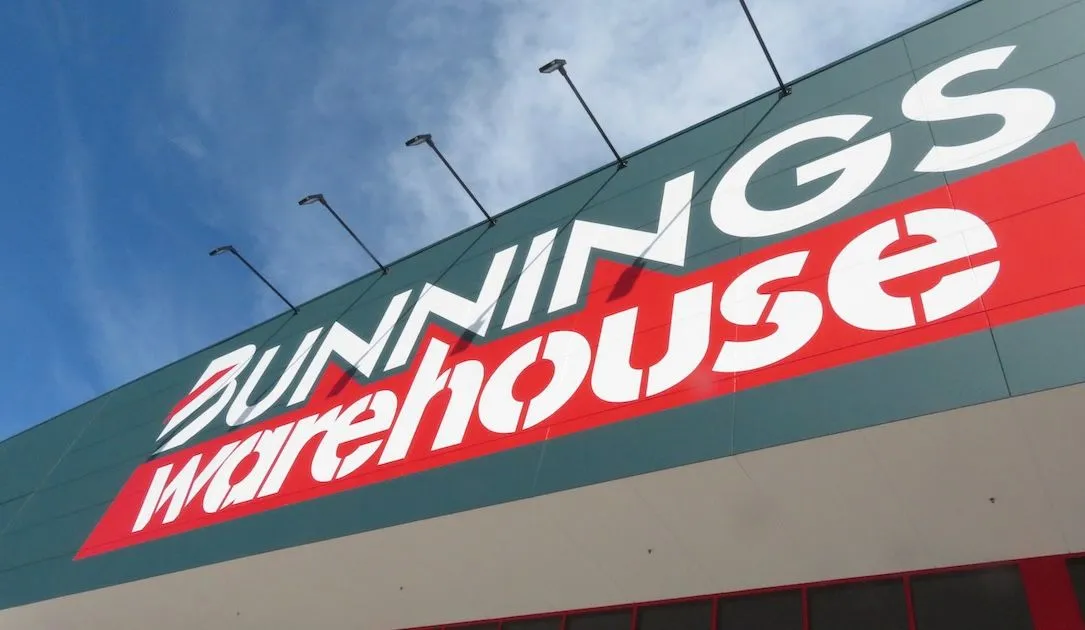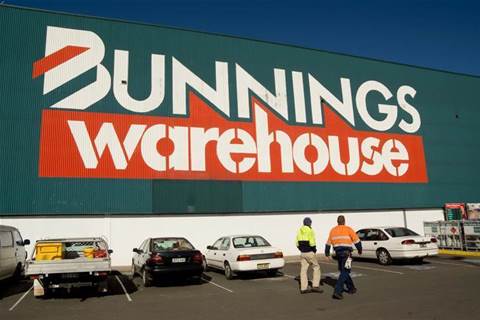Australia’s Top 100 Young Entrepreneurs revealed

- by Admin
- April 8, 2024

The scope of this task is not one that we take lightly. Thankfully, we were able to draw upon a stellar cohort of founders from the 2023 Australian Young Entrepreneur Awards, but we also recognise that broader horizons are required in order to present a list that is as complete as possible to compile, attempting to bring together the most objective process in what is an inherently subjective exercise – measuring business success.
Profitability, revenue, economic and societal impact, valuations, growth and sustainability are among the factors taken into consideration as we compare entrepreneurs who are often at vastly different stages in their journeys. One may look at adjacent entries list and ponder, how do you compare a telehealth company with a cleaning service? Or a culturally-oriented translation provider with a quick service restaurant chain?
To delve into such questions is a torturous process. We cannot give you a complete answer to our working because much of the information we hold is confidential, and we treat the data given to us in confidence by these exceptional entrepreneurs as a great privilege. So we seek to do them justice, and lament the fact there are so many brilliant people we greatly admire who didn’t make the list.
Every year we are criticised for not having enough female founders in the list, as if we were responsible for the imbalance that exists in Australian business and that by putting a higher weighting for one particular identity marker, that would somehow make the situation better for women in corporate Australia. The fact is, we are domain-agnostic and identity-agnostic in putting this list together; if we weren’t, it would mean less. There is not a single female or diverse background founder here that has been chosen to meet quotas.
Nonetheless, we are proud that the number of companies in this list with a female founder (getting ever closer to a quarter) exceeds the proportion of capital raised by Australian startups with female founders last year, and for an independent news organisation that is founded and owned by a migrant woman, it is fulfilling for us to observe the diverse nature of the participants on so many other levels, particularly when it comes to multicultural representation. However, there is only one founder on the list who we know identifies as Indigenous.
It is our hope that despite all the negative news in the world that can be so thoroughly dispiriting, this list can serve as an inspiration for future and existing founders, because the entrepreneurs profiled here are changing the future of Australian business. We are certain that many of them will, and have already, spawned more companies, projects and research through the fostering of talent and their normalisation of entrepreneurial values.
Business is competitive and deeply personal. In the words of Jacaranda Finance founder Daniel Wessels, starting a business has been a “profound catalyst” for personal and professional growth, while for Lyka founder Anna Podolsky the journey has been “incredibly rewarding and fulfilling”.
“I’ve experienced both soaring highs and challenging lows, but through it all, I’ve learned valuable lessons about myself as a leader and created life-long memories with my team,” she says.
It takes high aspirations to start a company, and to stick with your big dream even when the going is not just tough, but seemingly insurmountable. As we dive in to this list of inspiring entrepreneurs, we’d like to share the following quote from the influential American naturalist Henry David Thoreau, whose words in the 19th century ring just as true today:
“If you have built castles in the air, your work need not be lost; that is where they should be. Now put the foundations under them.”
1. Cliff Obrecht (38) and Melanie Perkins (36)
Canva
Sydney
As a north star of global success for so many Australian startups, Canva marked a decade in business with exponential growth in 2023 as it lifted its staff count by a third to 4,000, introduced a new developer platform, opened new offices in the UK, Texas and Melbourne, and its community of users skyrocketed to 170 million people.
The multinational’s origins go back to Perth, where Melanie Perkins and Cliff Obrecht started Fusion Books in 2007 to help students design and print school yearbooks, but in 2012 they teamed up with Cameron Adams to create a graphic design and visualisation tool with much greater ambitions.
The latest of these was revealed at the start of this year with a major refurbishment planned for its Sydney headquarters, due for completion in 2026. In March 2023 the group also acquired UK-based professional designer creative software tool Affinity and its parent company Serif.
Related story: Canva acquires professional designer software suite Affinity
 2. Chris Eigeland (33), Vu Tran (35) and Andrew Barnes (35)
2. Chris Eigeland (33), Vu Tran (35) and Andrew Barnes (35)
Go1
Logan
Utilised by more than 17,000 businesses worldwide and with someone completing a course or other learning resource on its platform approximately every three seconds, ed-tech Go1 has seen its user numbers and revenue double over the past year, supported by three acquisitions since the start of 2022 – Swiss-French company Coorpacademy, UK-based Anders Pink, and German group Blinkist which summarises books and learning materials into bite-sized ‘Blinks’.
To boot, in February the Logan-headquartered company launched a new suite of AI-powered features and tools for more tailored offerings, allowing admins to “turbocharge content discovery, curation and selection”.
Related story: Go1 acquires ed-tech offering bite-sized summary ‘Blinks’

 3. James Ferguson (31), Robbie Ferguson (26) and Alex Connolly (25)
3. James Ferguson (31), Robbie Ferguson (26) and Alex Connolly (25)
Immutable
Sydney
Founded in 2018 and cashed up from a $273 million Series C raise in early 2022, blockchain powerhouse Immutable has become a dominant force in the world of web3 gaming – a sector that has undergone phenomenal growth in recent years with the company’s Immutable X platform used by developers to bring games to light.
So far this year the company has entered a strategic partnership with French giant Ubisoft, known for Assassin’s Creed, to bring more mainstream games to web3, and is teaming up with its investor King River Capital and fellow web3 gaming player Polygon Labs to roll out a US$100 million fund for investing in the sector.
Immutable and Polygon are estimated to constitute around 70 per cent of blockchain game development worldwide.
Related story: Immutable, King River Capital and Polygon Labs launch US$100m web3 gaming fund

 4. Dean Mintz (38)
4. Dean Mintz (38)
Cettire
Melbourne
While online luxury retail marketplace Cettire has faced media scrutiny over how it handles customs duties, which the company has fiercely defended, the recent knock to its share price is from record highs with its valuation still many multiples higher than its 2020 initial public offering (IPO).
Founded in 2017 software developer Dean Mintz, Cettire notched a 65 per cent year-on-year sales surge in the December half with repeat customers representing half its gross revenue.
Related story: Cettire valuation surges by $370m after “strongest trading half” since IPO

 5. Anthony Zaccaria (40), Alex Zaccaria (34) and Nicholas Humphreys (26)
5. Anthony Zaccaria (40), Alex Zaccaria (34) and Nicholas Humphreys (26)
Linktree
Melbourne
As an in-bio link provider to connect to social media profiles, Linktree serves more than 45 million users including some of the world’s leading creators and brands. For the company – which scaled back on staff last year but in the past 12 months has also made two acquisitions to bolster its offering through Bento and Koji – an expansion has also been made into social commerce, marking a first step into new revenue streams whereby users can set up shops to appear in their link-in-bio page.
Related story: Linktree acquires Koji, another link-in-bio competitor

 6. Dr Aengus Tran (30) and Dimitry Tran (37)
6. Dr Aengus Tran (30) and Dimitry Tran (37)
Harrison.ai
Sydney
Amidst the twin challenges of rising demand for healthcare services and skills shortages, brothers Dimitry and Aengus Tran have built AI tools that speed up diagnosis, improve patient experience and reduce costs.
With US$110 million raised to date and joint ventures with I-MED Radiology Network and Sonic Healthcare, Harrison.ai has set the ambition to impact the lives of more that one million patients daily by 2025. To assist in its current growth phase, in mid-2023 the group appointed Tesla chair Robyn Denholm to its board.
Related story: Tesla chair Robyn Denholm joins Harrison.ai board

 7. Xavier Orr (37) and Chris Shaw (38)
7. Xavier Orr (37) and Chris Shaw (38)
Advanced Navigation
Sydney
From fully autonomous submersible drone called Hydrus being manufactured at Australia’s largest subsea robotics centre in Perth, to a space-qualified Light Detection, Altimetry and Velocimetry (LiDAV) sensor called LUNA targeting NASA’s Moon to Mars Initiative, the research never stops for Advanced Navigation – a company founded by Chris Shaw and Xavier Orr in 2012 to commercialise the latter’s university thesis on a revolutionary neural network AI approach to navigation.
In the second half of 2023, the company opened its robotics manufacturing facility based out of UTS Tech Lab, and for a company that secured $108 million in a Series B at the end of 2022, the high-profile research grants keep coming with the announcement in December that the Department of Defence would support Advanced Navigation in its sovereign manufacturing capabilities for photonic chips.
Related stories: Advanced Navigation technology Moon-bound with $5.2m grant
Advanced Navigation unveils 5.5-acre subsea drone facility in Perth
Patience pays off: How Xavier Orr’s AI research led to deals with Google, Apple, Airbus and more

 8. James Gilmour (39)
8. James Gilmour (39)
Gilmour Space Technologies
Gold Coast
Since 2013, brothers James and Adam Gilmour have been working on their dream to send sovereign-made Australian rockets into low earth orbits (LEO) and beyond.
With more than 200 staff employed and a liquidity boost following a $55 million Series D earlier this year, the company is gearing up to send its first Eris rocket from its exclusive Bowen Orbital Spaceport in North Queensland.
Related stories: Gilmour Space receives green light for Australia’s first orbital spaceport
Gold Coast tech giant Gilmour Space raises Series D at $605m valuation

 9. Dr Reuben Sim (39) and Dr May Chan (38)
9. Dr Reuben Sim (39) and Dr May Chan (38)
Dental Boutique
Melbourne
For more than a decade, husband-and-wife founder duo Reuben Sim and May Chan have been helping remove the stigma that cosmetic dentistry is only attainable for the rich and famous, tailoring affordable payment plans to people from all walks of life through a network of clinics in Melbourne, the Mornington Peninsula, Geelong, Sydney, Adelaide, Brisbane and Auckland.
Chan understands what Dental Boutique’s smile transformations mean for patients, having herself lived with dark tooth following a bad fall as a child. After completing their dental training at the University of Adelaide in 2008, the pair worked with some of the world’s leaders in the field before establishing their own “judgment-free dental space”.
“Dental Boutique’s mission is to inspire and empower people to achieve the smile of their dreams while overcoming their fear and anxiety behind dental care,” says Chan.

 10. Paul Stovell (37)
10. Paul Stovell (37)
Octopus Deploy
Brisbane
After almost a decade in business and years of organic growth and profitability, in 2021 Brisbane deployment automation software company Octopus Deploy took on its first outside capital with Insight Partners making a US$172.5 million minority investment.
Since then its staff base has practically tripled to 270, and it has acquired Sydney-based software container company Dist and California-based rival Codefresh more recently.
Led by its husband-and-wife founder team of Paul and Sonia Stovell, Octopus Deploy is one of the most successful startups to go through the UQ Ventures program, and is now one of the largest privately held companies in the DevOps ecosystem, servicing more than 4,000 customers.
Related story: Octopus Deploy acquires US competitor Codefresh
Click below for this year’s top 100
The Latest News
-
November 23, 2024Smith fires, Herbert in LIV mode as Aussie PGA heats up
-
November 23, 2024‘My story’s still not done’: Joel Dahmen drains ticklish putt to make cut at RSM, keeps hopes alive of retaining tour card – Australian Golf Digest
-
November 23, 2024Australian PGA 2024: LIV Golf’s 54-hole starts good prep for rain-shortened event, says Herbert – Australian Golf Digest
-
November 23, 2024Australia v India: first men’s Test, day two – live
-
November 23, 2024Live Test updates: Indian speedsters continue rout of Australia as Bumrah takes five





